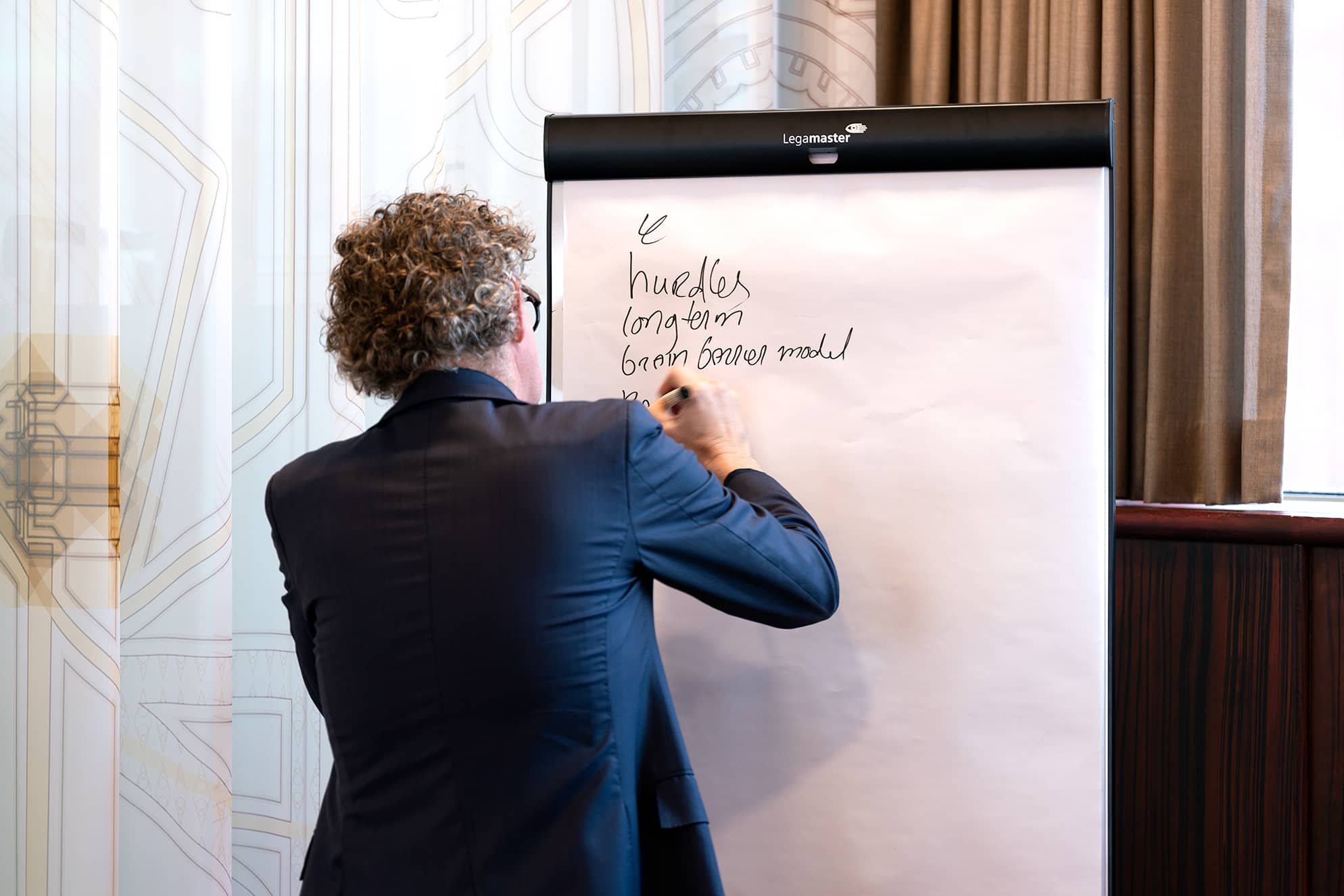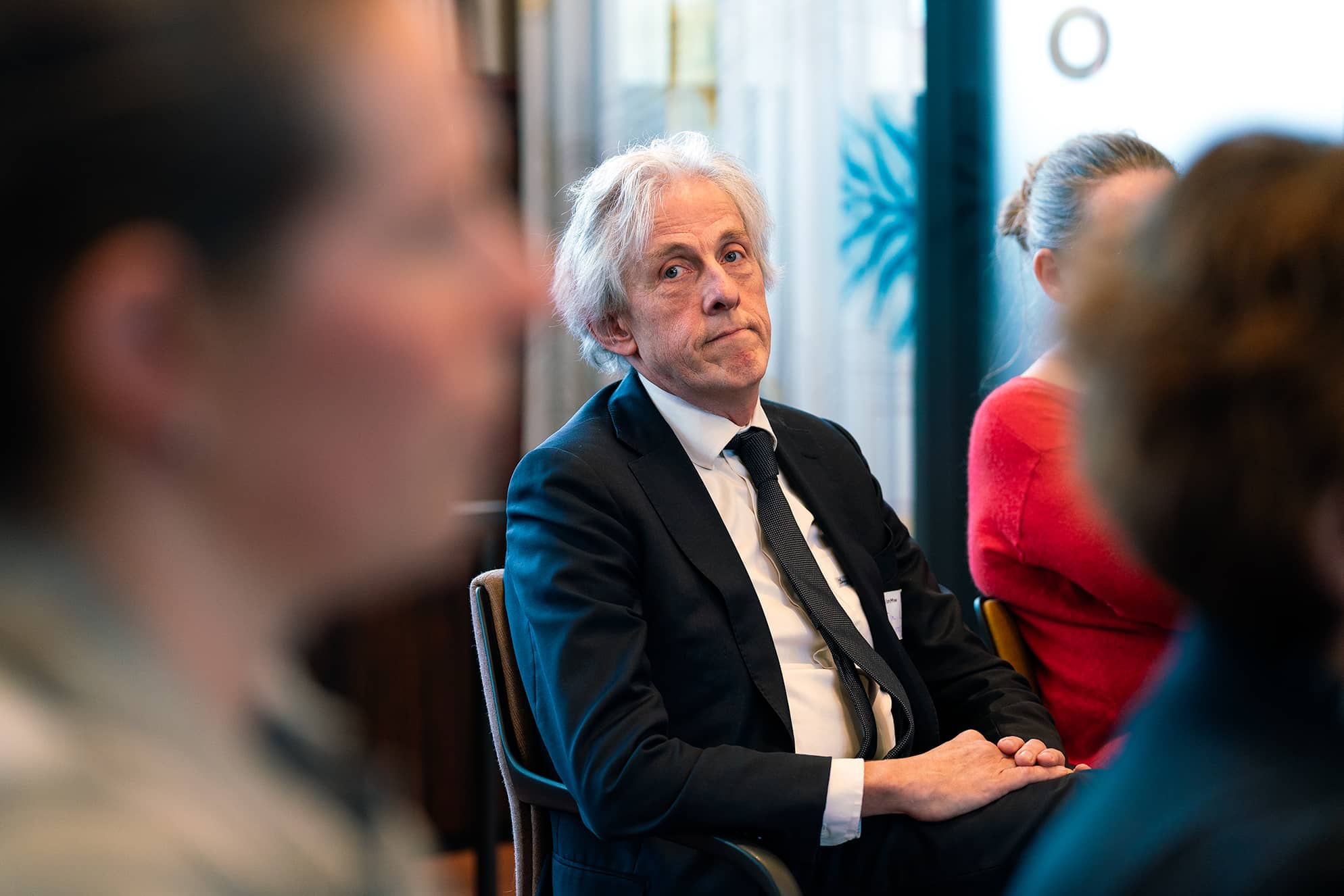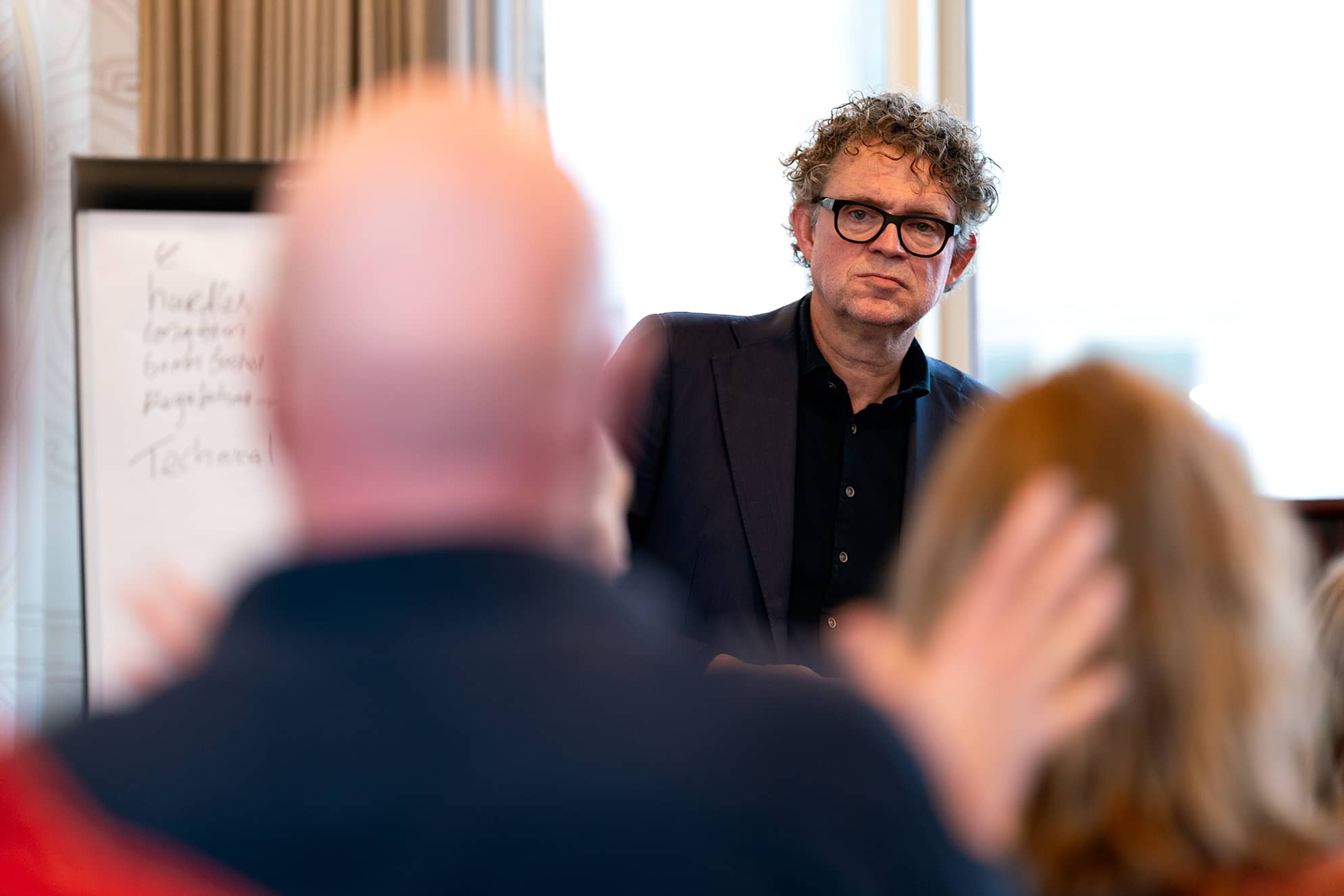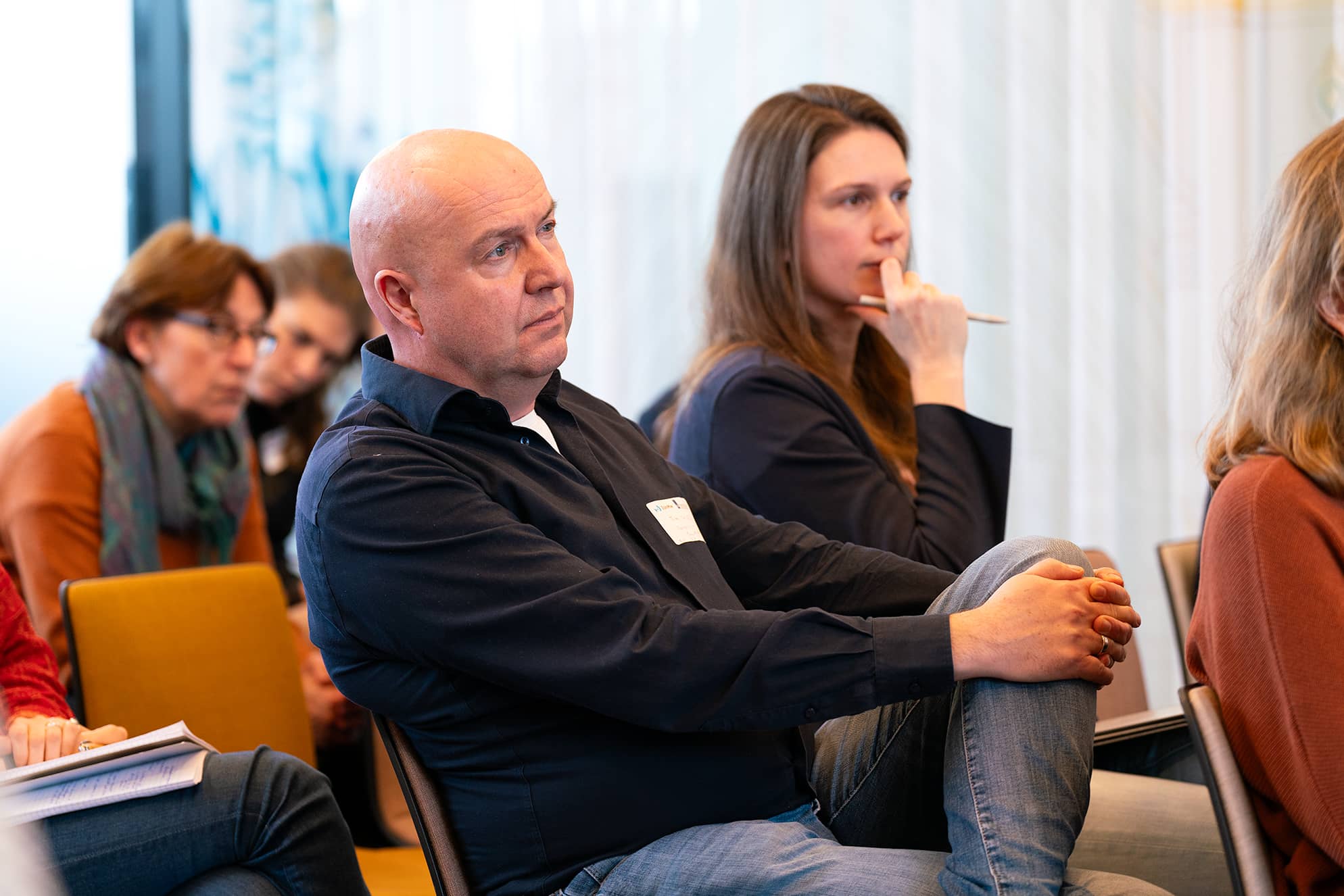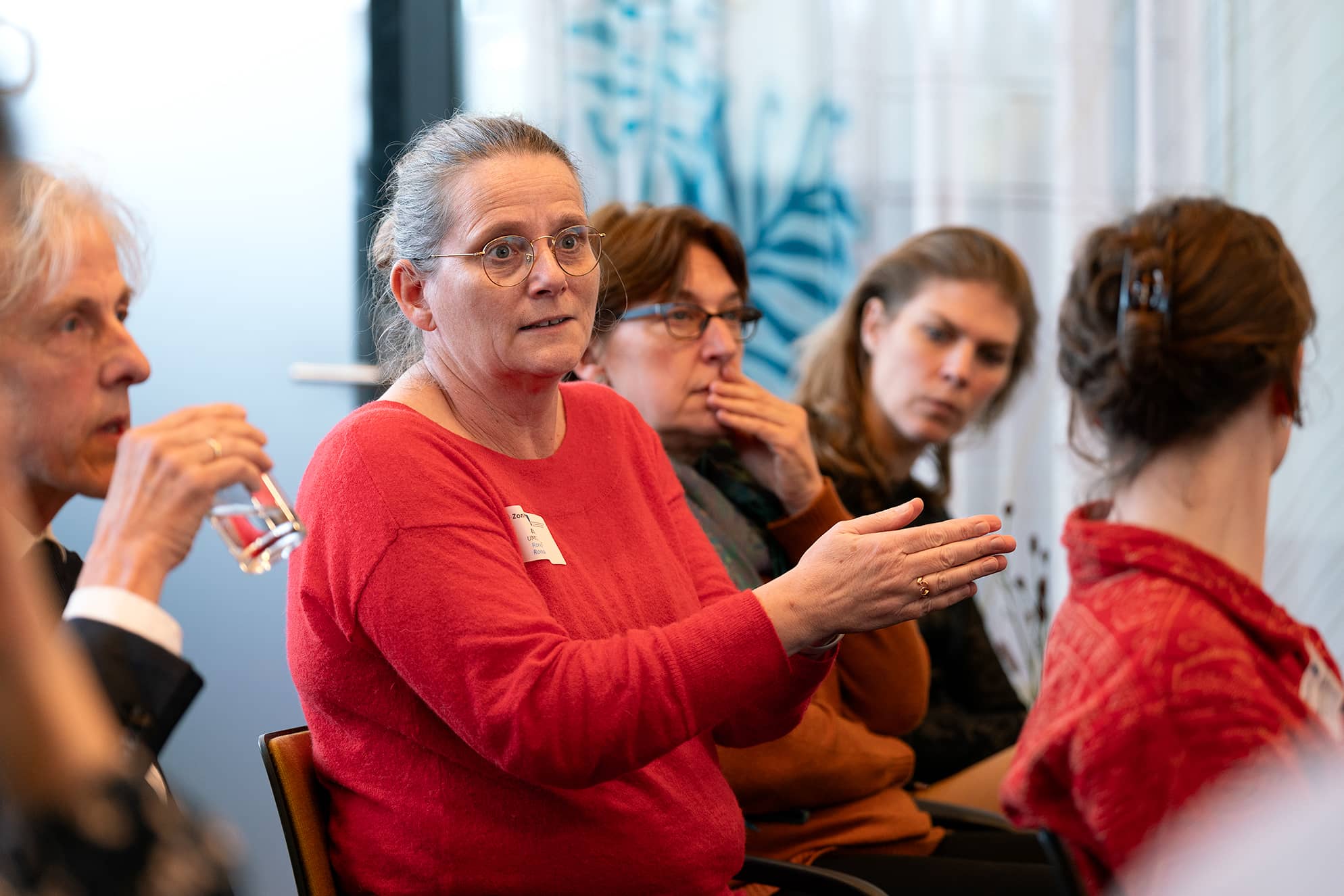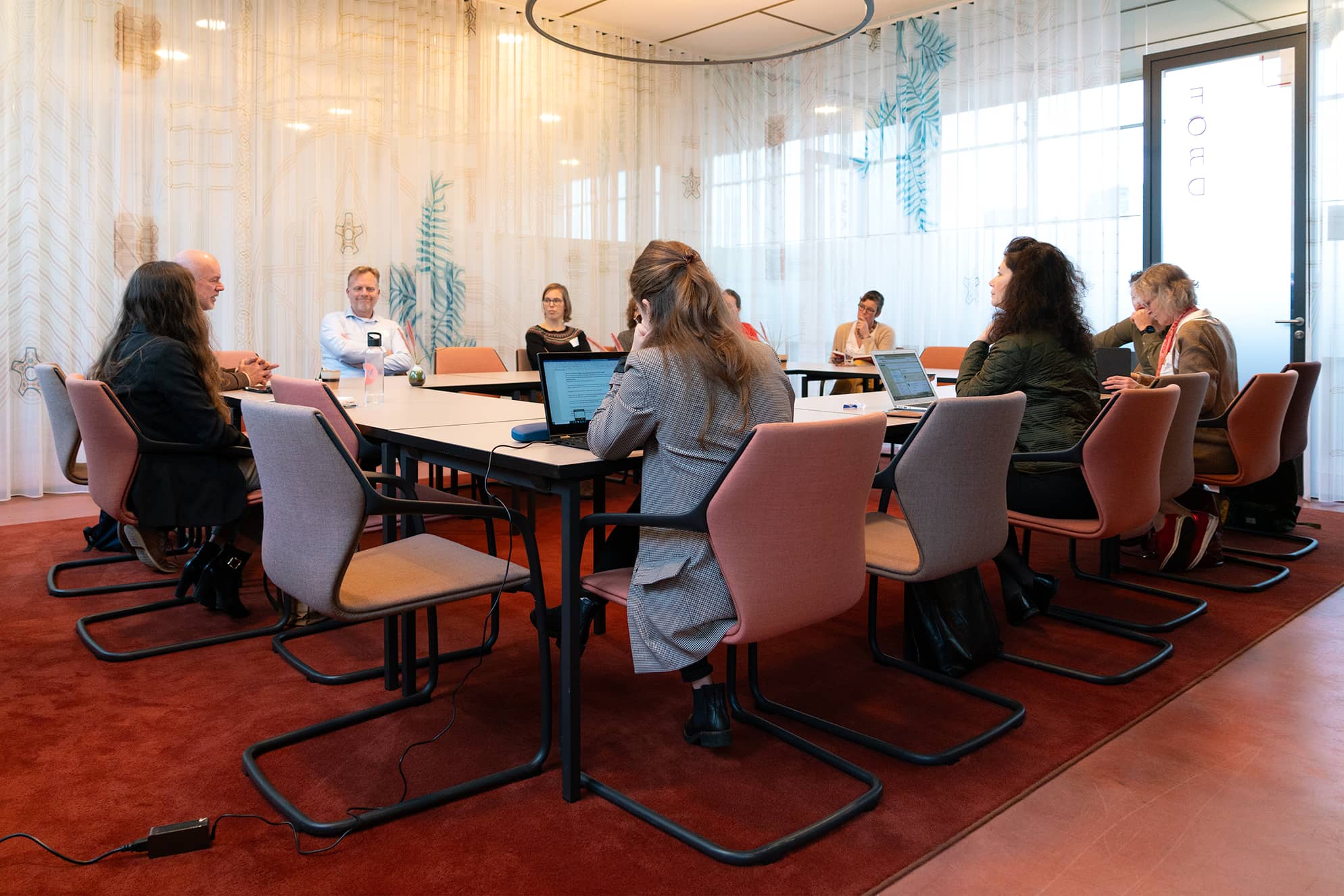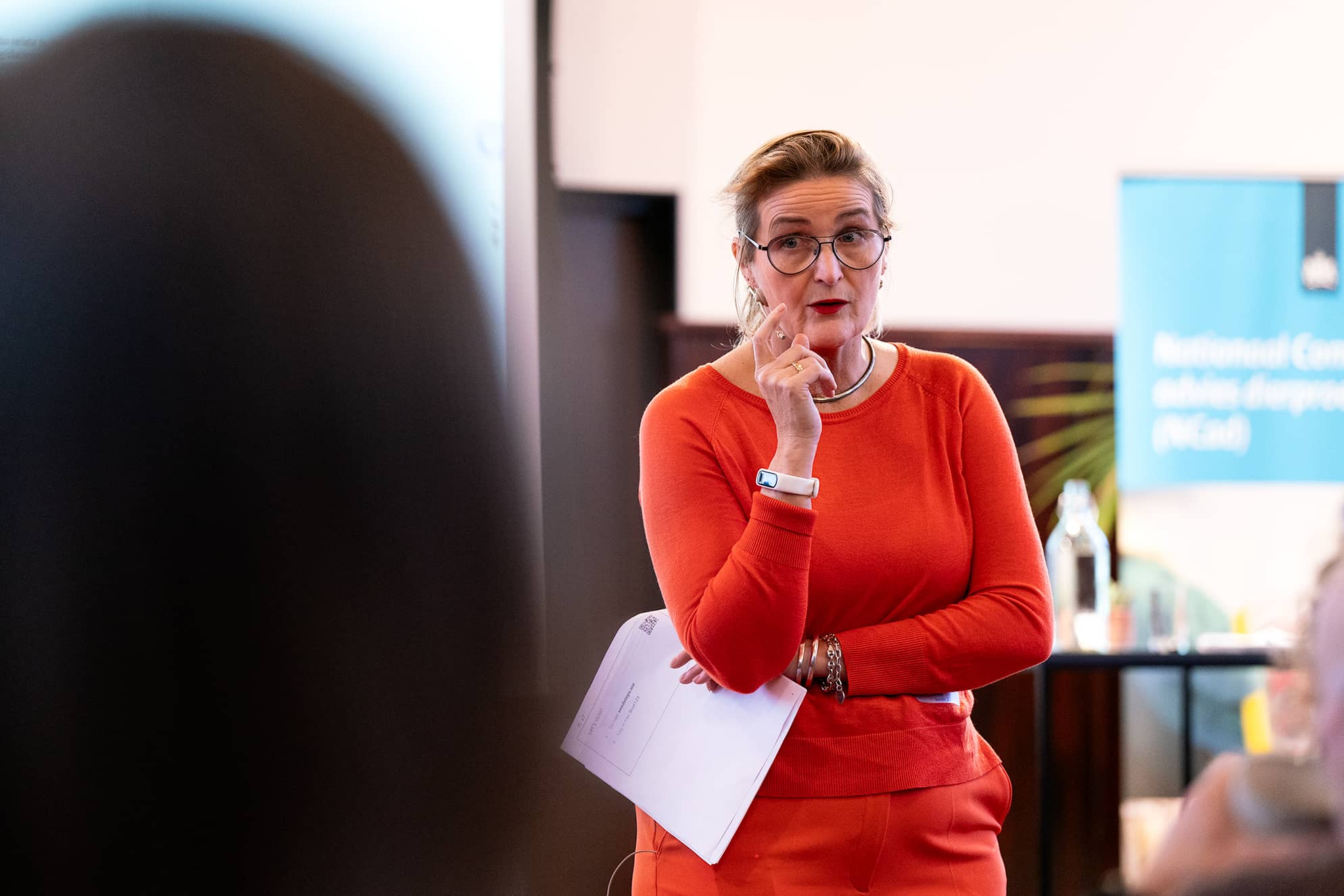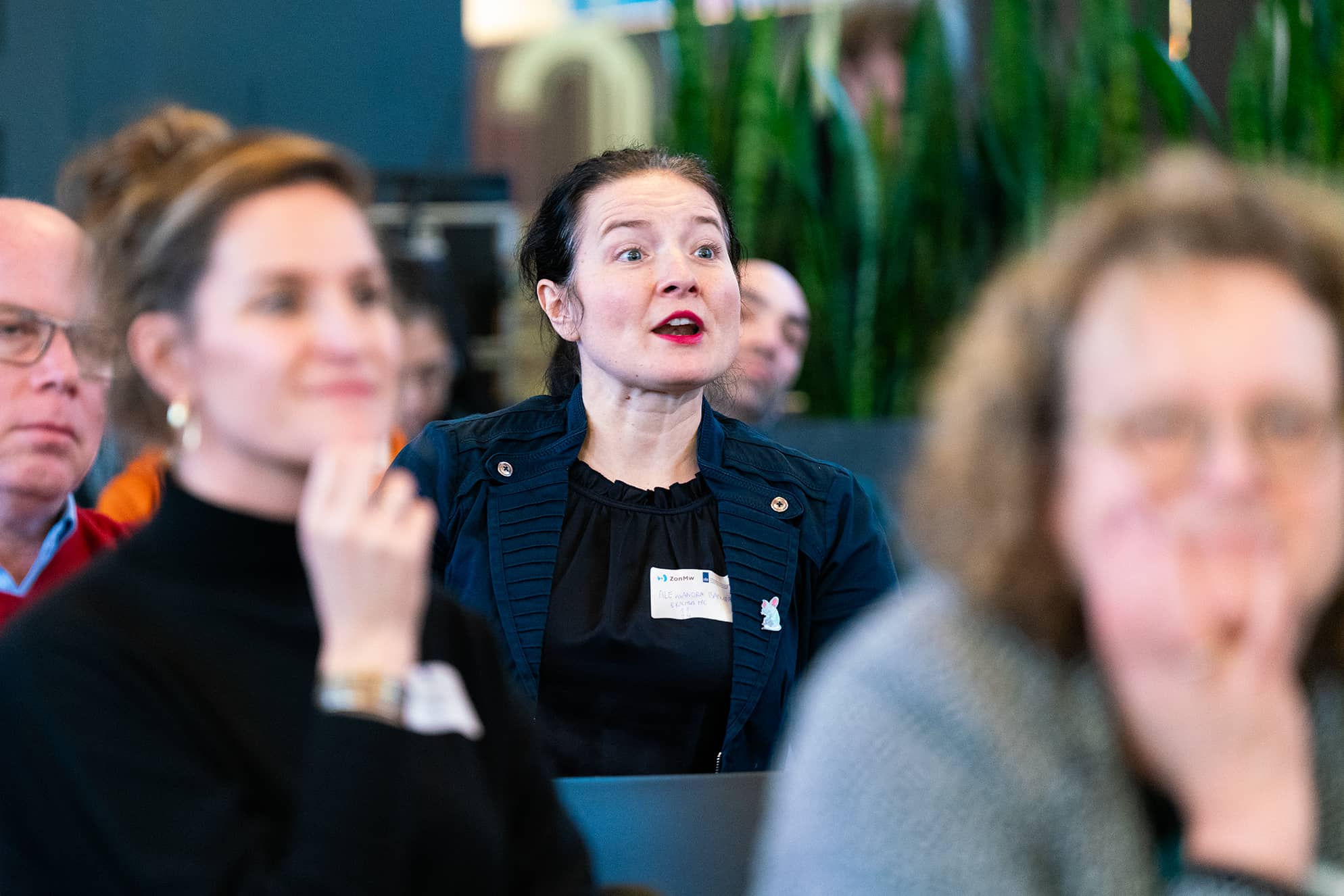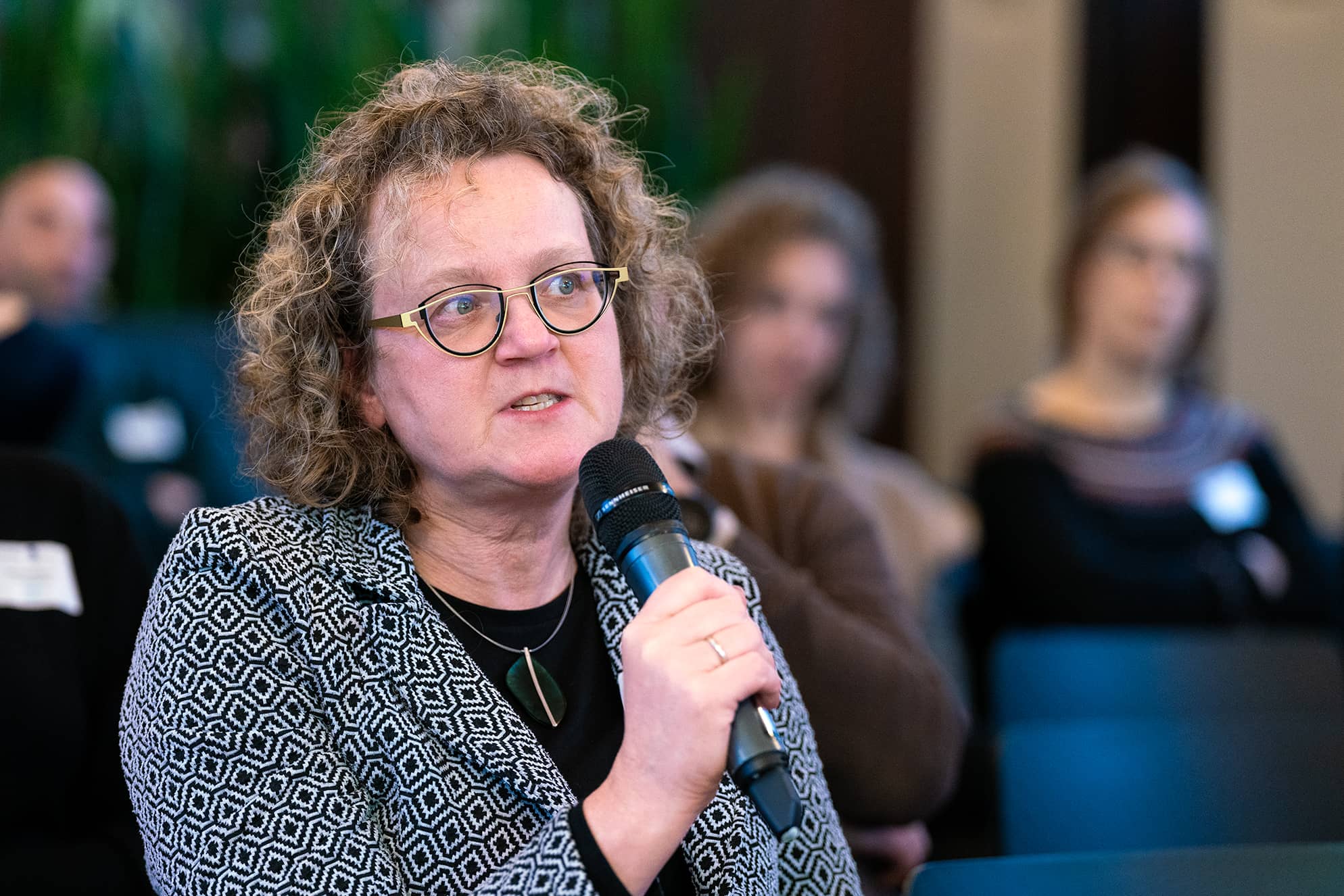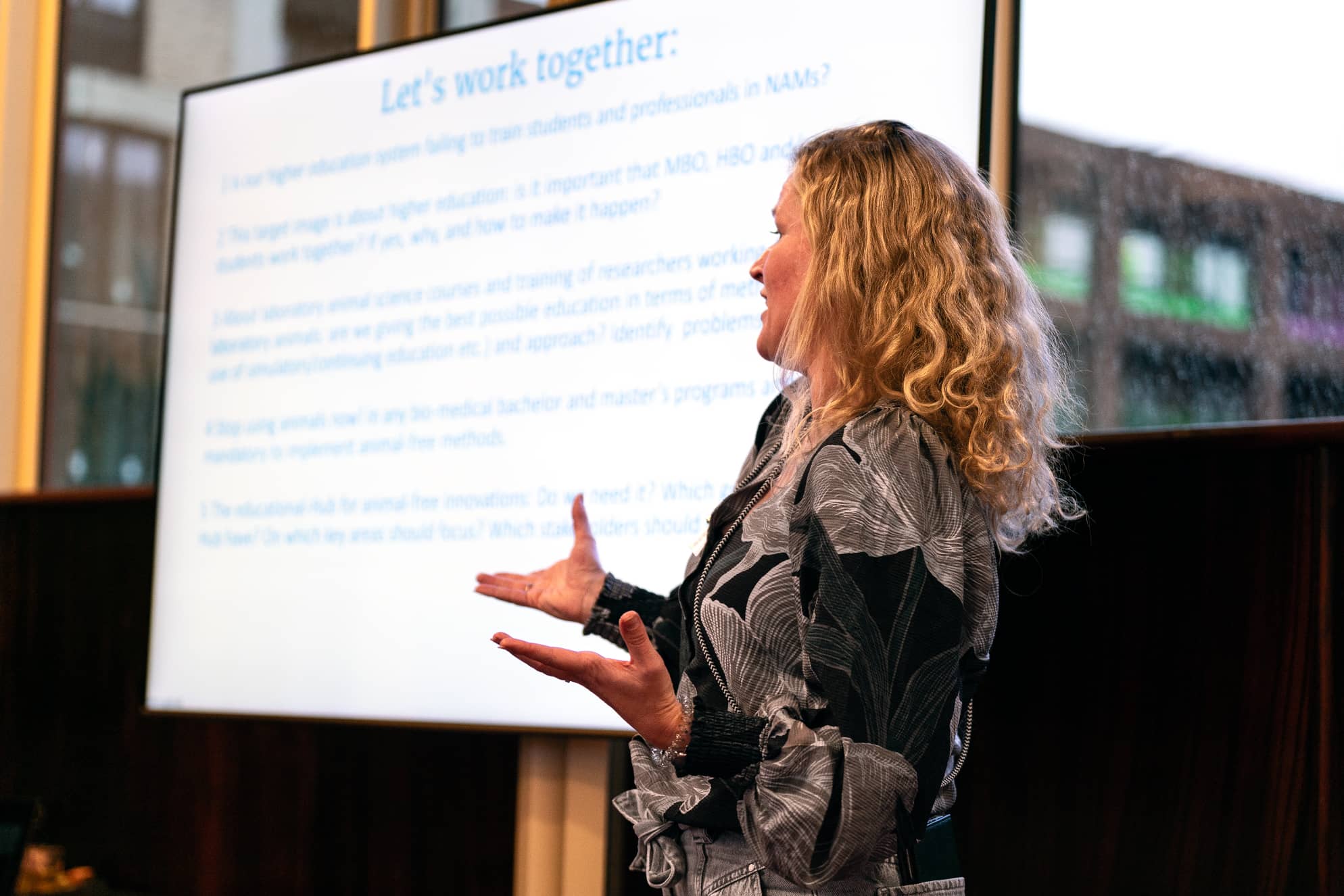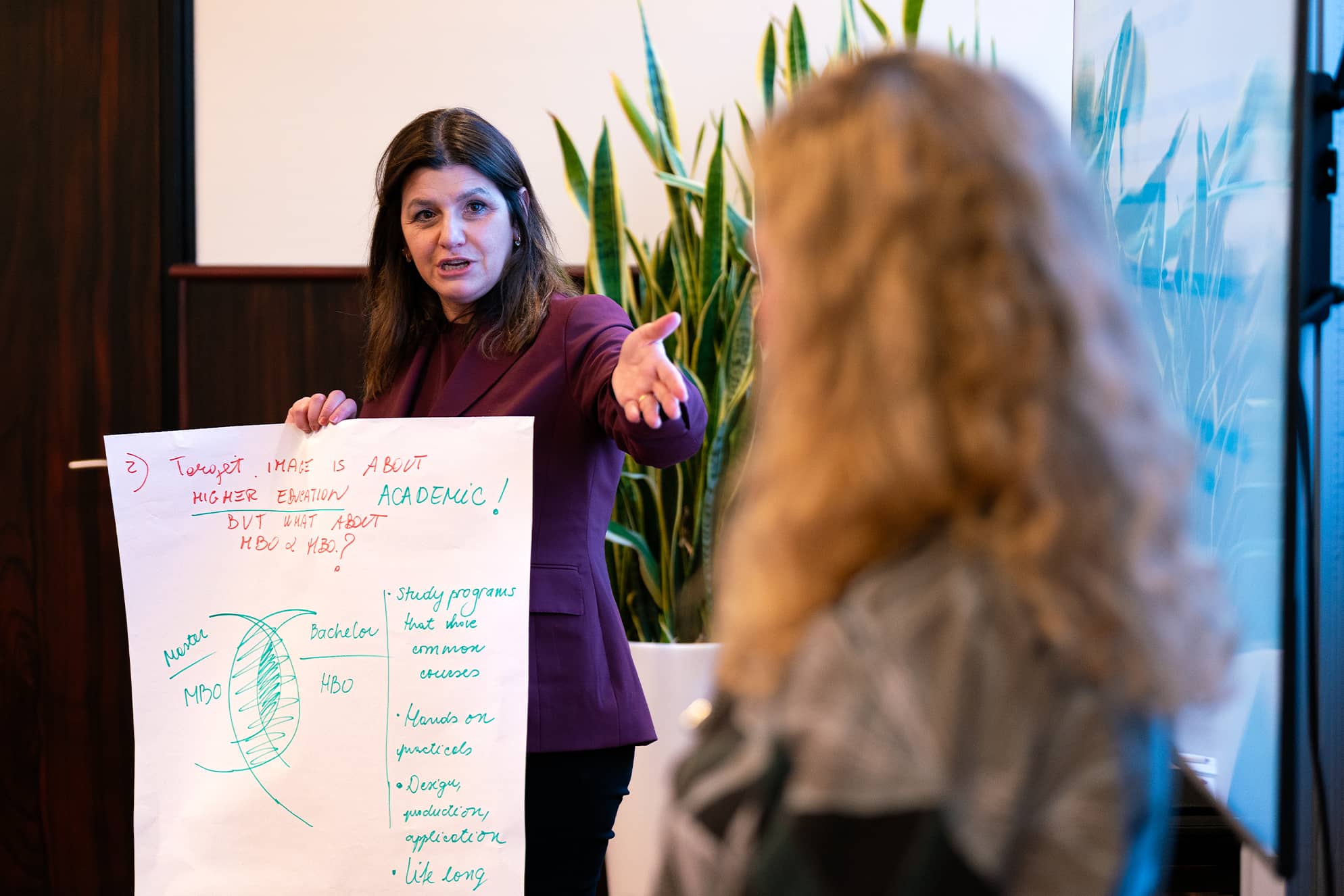Report of an inspiring symposium on the transition to animal-free innovations.
On: 12 December 2023
In: Villa Jongerius, Utrecht
Organisation: ZonMw and NCad
On 12 December, researchers, policymakers and other stakeholders gathered in Utrecht to exchange views on the transition to animal-free innovations and laboratory animal research. The symposium was organised by ZonMw and the NCad of which the knowledge agenda and the target images were the focus, respectively.
Jointly realised symposium
An excellently prepared lunch - partly vegetarian, partly vegan - proved an atmospheric kick-off. Despite just under 20 sick calls, the Lincoln Zephyr room at Villa Jongerius in Utrecht, where the central opening took place, almost filled up.
In his opening speech, Prof Arfam Ikram, chairman of ZonMw, praised the beautiful venue, where ZonMw and NCad (National Committee for the Protection of Animals Used for Scientific Purposes) for the first time combined their organisational forces in the ambition to improve human health through optimal biomedical research. An important factor in that optimisation is the conversation about the use of laboratory animals.
Co-host Henk Smid, chairman of the NCad, also expressed his appreciation of this jointly realised symposium, which is in line with the target images developed by the field; to which a fourth was recently added, focused on immunological research. The commitment and input of many are necessary for this. Therefore, Smid called the symposium primarily an invitation to conversation and discussion.
Arfan Ikram
Partner programmes of government and science
For a characterisation of the government's position, an interview followed with Hugo van Kasteel, who is the director of ‘Animal Supply Chain and Animal Welfare’ of the Ministry of Agriculture, Nature and Food Quality. He started by emphasising that the ministry warmly welcomes any form of free publicity for the partner programme Transition to Animal-free Innovations (TPI); after all, it is with this programme that the ministry encourages the development and application of non-animal research methods. Van Kasteel sees a huge willingness in partner programmes of government and science to encourage the transition to animal-free, although he expects that animals will still be used in (biomedical) research for at least the next 10 years.
Van Kasteel pointed to the attention in the House of Representatives, where at least 10 motions in this area have passed in recent years.
The commitment from the ministry focuses on at least three points:
- endorsement of the 3 Rs (Replacement, Reduction, Refinement);
- acceleration of the TPI programme;
- strengthening the position in the European context.
The financial commitment from the ministry is at least €10 million a year. In addition, Van Kasteel points to the National Growth Fund application for a Centre for Animal-Free Biomedical Translation (CPBT), for which 125 million euros is currently earmarked. But even more than money, Van Kasteel says a change in public opinion is needed. Which, moreover, calls for bridging the gap between conflicting interests.
Hugo Kasteel
Collaboration, team science, and data sharing
Prof Jaap van Buul followed with a dynamic presentation of his advanced microscopic research into the behaviour of white blood cells.
Van Buul is professor by special appointment of Molecular Cell Biology of Cell Migration at the Faculty of Natural Sciences, Mathematics and Computer Science at the University of Amsterdam. He supported his enthusiastic and humorous talk with beautiful visual material, showing, for example, the passage of a white blood cell through our circulatory system (NB 100,000 km long(!)) and the 'walk' of white blood cells around inflammations in the body. Without adequately summarising Van Buul's argument at this point, he showed that in vitro research is not only preferred but even indispensable to understanding the process of transendothelial migration and the function of endothelial cells in tissues. In vitro research - including vessel-on-a-chip technology - is thus an indispensable support for in vivo research, which nevertheless remains necessary to study the processes real-spatially (i.e. in 3D).
In response to questions from audience members, Van Buul replied that in vitro research cannot replace all research using laboratory animals. Nor is it currently feasible to replace all use of laboratory animals with 'human models', (patients). The methods complement each other. "Experts know a lot about very little," says Van Buul. Hence his call for collaboration, team science, and exchange of data in a collectively shared catalogue.
Jaap van Buul
The parallel sessions
Many aspects and perspectives of the transition to animal-free innovation were highlighted and discussed in 2 x 4 parallel sessions, from the following themes:
- The (un)usefulness of systematic reviews - Carlijn Hooijmans
- Target Immunology: what will be the next step? - Theo Geijtenbeek
- Target cardiovascular science: what will be the next step? -Robert Passier
- Validation of non-animal techniques - Janny van der Eijnden
- Preregistration of animal testing - Julia Menon
- Does the transition require a new mindset or more knowledge? - Henriëtte Bout
- Target Education: what will be the next step? - Daniela Salvatori
- Target Neuroscience: what will be the next step? - Elly Hol
In most sessions, a short introduction was followed by several statements, on which proponents and opponents defended their position in substance. By way of summary, below are ten trends in their responses:
- The danger of unwarranted generalisation is great. Many position statements are closely related to what exactly your research question (and sometimes: your research area) is.
- The discourse on animal-free science is (still) young: it appears important to define concepts clearly and agree on them.
- In the discussions on the feasibility of animal-free research, one of the three Rs is gradually being lost sight of, to the detriment of animal welfare: that of Refinement.
- As scientists, it is important not to have blinders on. Keep in constant touch with industry and public opinion, for example.
- It does not seem that the mindset towards animal-free research is currently insufficiently present among researchers, manufacturers and other stakeholders. Much more important are the dissemination of knowledge and the exchange of who does what and where you can find each other.
- In vitro research and organ-on-a-chip technology are making solid progress. Yet it does not look like biomedical science will be able to do research without laboratory animals within a short time. Although the Netherlands is a forerunner in this field, European legislation and dominant scientific players (in the US, for instance) are inhibiting factors.
- Sessions of three-quarters of an hour appear to be too short to deal satisfactorily and in sufficient depth with the issues raised.
- In practice today, testing with laboratory animals is still an important and sometimes crucial factor in getting scientific research funded, reviewed and published.
- Two factors that greatly help accelerate the transition:
- broad communication towards both national and local governments;
- intensification of education, at all levels from university to secondary school, and also to researchers who currently still work with animals, so that experts find each other better.
- The title of the symposium was stimulating but could be improved. It is not necessary - and not useful - to put ambition against realism. It is especially important to pull together in ZonMw's Knowledge Agenda Transition towards Animal-free Innovation. It is fruitful to compare research methods with and without laboratory animals and identify where they complement each other. This does not diminish the ambition to have the 3Rs relentlessly top of mind.
Willy van Heumen oeuvre award ceremony
The Willy van Heumen Fund is named after a former resident of Heumen, Brabant, who wished to remain anonymous. The fund supports and stimulates research that brings animal-free science closer. It does so with a biennial prize as well as a ten-year oeuvre prize. This oeuvre prize - a statue, medal, certificate and € 15,000 for free expenditure on research - was presented to Professor Sue Gibbs.
Gibbs has specialised in skin and mucous membranes within regenerative medicine. She works as a principal investigator at VU/Amsterdam UMC in the Department of Molecular Cell Biology and ACTA in the Department of Oral Cell Biology. In her now more than 30-year career, Gibbs has been relentlessly and in many ways involved in the successful development of animal-free therapies and testing strategies. She is also widely recognised internationally for this.
Gibbs is a co-founder of the TPI Helpathon programme and shares her expertise with the NC3Rs, the UK's 3Rs organisation, among others. She has a generous track record in appearances before a wide audience, where she tirelessly brings forward the opportunities that alternative technologies offer.
In her research, Gibbs has long been involved in the development of skin organoids as an animal-free methodology. In recent years, the focus of Gibbs' career has increasingly been on teaching, both to undergraduate, graduate and PhD students, as well as PhD researchers. In doing so, she motivates a broad group of future researchers to apply non-animal methods in cell biology and immunology.
Sue Gibbs expressed herself as "completely overwhelmed" with this recognition. Her acceptance speech was brief: "I'm not one to shout from the rooftops about how research should be done. But if you are a kindred spirit and supporter, my door is always open to you."
Sue Gibbs
Closing: more discussion and networking
Finally, initiators and organisers Leane van Weereld (NCad) and Martijn Nolte (ZonMw) thanked everyone who had contributed to this special event. The planned time for drinks and informal networking afterwards was greatly exceeded. This was illustrative of the involvement and excellent atmosphere on this afternoon.
To conclude, some reactions from participants:
“The conversations and exchange of ideas were constructive. But the 45-minute setup was too short to consider every point of view. My wish would be to have more attention to the long term, rather than a ping-pong of facts.”
Nicolas Guy, Beyond Solution (start-up organoid-developer)
"I am currently coordinator of two science masters at Amsterdam UMC, but apart from that I am mainly looking for a PhD without animal models. You won't find many of those in my research area, oncology. So I am also here to network. I came here with the perhaps naive idea that everyone wants to continue without animal models. But that probably cannot be an end goal for the next 20 years. I think AI can go a long way, but that has been little discussed today. Possibly the link between AI and biomedical still needs to be strengthened."
Sue van de Griendt, Amsterdam UMC
"I am glad ZonMw and NCad organised this day. I was looking forward to it because I was already familiar with ZonMw's TPI Knowledge Agenda and hoped we would be able to go deeper into many points. That certainly succeeded in the workshops. But this afternoon could easily - and perhaps better - have been a whole day."
Monique Janssens, communications adviser of the Ministry of Agriculture, Nature and Food Quality's partner programme TPI
